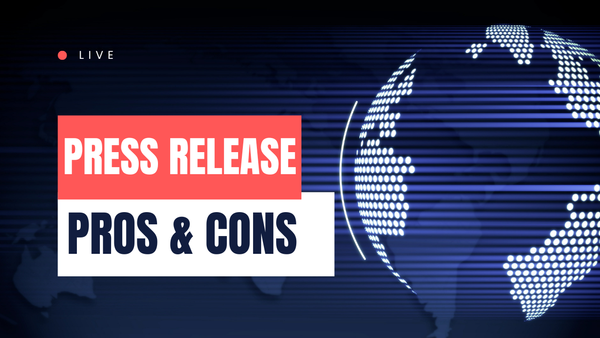AI Companies in Lebanon – Wait, What?!

AI Companies in Lebanon present a facade of technological progress. However, deeper analysis reveals significant investment risks and underlying challenges in the sector.
This article uncovers the challenges surrounding AI Companies in Lebanon and why caution is advised.
The Reseller’s Realm
Lack of original AI development
A major problem in Lebanon’s AI industry is its heavy reliance on foreign AI solutions.
This reliance limits original development, leading to a shortage of customized and innovative AI applications.
As a result, this highlights a significant gap in Lebanon’s AI industry.
Consequently, this scarcity of locally developed, inventive AI technologies hampers the companies’ ability to effectively tailor solutions to address the specific market needs and challenges of Lebanon.
Foreign tech dependency
This reliance on foreign solutions creates a dependency that can be problematic. It limits the growth of homegrown expertise and innovation in the field of AI. Thus, Lebanon’s AI Companies struggle to adapt swiftly to market shifts or provide standout, unique solutions.
Customization limits
The reselling model also impacts the level of customization and flexibility available to Lebanese businesses. With AI solutions not being developed in-house, adapting these technologies to meet specific local business requirements becomes a challenge. This can result in AI applications that are less effective in addressing the unique market dynamics and consumer behaviors in Lebanon.
Quality concerns
There are also concerns regarding the quality and reliability of AI solutions offered by resellers. Without direct development control, Lebanon’s AI Companies may face challenges ensuring the effectiveness and performance of AI tech, affecting implementation and maintenance.
The high cost of commission
Investing in AI Companies in Lebanon often comes with hefty commission fees. These inflated costs, driven by the reseller market, make AI investments in Lebanon less economically viable compared to direct investment opportunities available in other regions.
The Expertise Dilemma
Mismatch between skills and industry needs
Generalists vs. Specialists: In AI companies in Lebanon, a critical problem arises due to the mismatch between professionals’ existing skill sets and the specific requirements of the AI industry. Many have a general software development background, which lacks the specialized expertise essential for advanced AI projects.
Lack of practical AI experience
The lack of practical AI experience compounds the challenges faced by AI companies in Lebanon.
While theoretical knowledge forms a solid foundation, practical application is where true expertise is honed. Limited access to hands-on AI projects and real-world problem-solving opportunities hinders the growth of AI professionals in Lebanon. As a result, AI companies often find themselves struggling to bridge the gap between theory and practical implementation, impacting their ability to deliver robust, market-ready AI solutions. Overcoming this hurdle is pivotal in nurturing a thriving AI ecosystem within the country and fostering the growth of AI companies in Lebanon.
Lack of R&D
The absence of substantial Research and Development (R&D) efforts within AI companies in Lebanon is another formidable challenge that impedes their progress. Robust R&D is the lifeblood of innovation in the AI field, enabling companies to stay at the cutting edge of technology. However, many AI companies in Lebanon face resource constraints that limit their ability to invest in long-term research projects. This lack of R&D infrastructure and funding restricts their capacity to develop proprietary AI algorithms and solutions, making them heavily reliant on external technologies. Without a strong commitment to R&D, these companies may struggle to keep pace with global advancements in AI, hindering their competitiveness and long-term viability in the ever-evolving tech landscape.
In-House Development
A far-fetched reality
The struggle of AI Companies in Lebanon to produce significant in-house technology, particularly in mobile app development, is indicative of the broader challenges they face with complex technologies like AI. This situation is a testament to the need for a more robust technological innovation ecosystem in Lebanon.
A Call for Change
Enhancing educational and training programs
Developing AI Expertise: To build a strong foundation in AI, Lebanon needs to focus on enhancing its educational and training programs. This includes integrating AI and machine learning courses in higher education curricula and providing specialized training for professionals.
Fostering a culture of innovation
Encouraging Startups and Innovators: To promote original AI development, it’s crucial to foster a culture of innovation. Supporting tech startups, offering grants and incentives, and establishing incubators can empower local entrepreneurs to explore AI technologies.
R&D investment for AI companies in Lebanon
Collaborations and Funding: Significant investment in research and development is key. Collaboration between universities, private sector, and the government can spur advancements in AI. Initiatives like funding research projects and opening dedicated AI research centers can catalyze progress.
Upgrading technological infrastructure
Building a Robust Tech Ecosystem: For AI companies in Lebanon to thrive, upgrading the technological infrastructure is essential. This includes improving internet connectivity, data storage capabilities, and access to advanced computing resources.
Creating favorable policies and regulations
Regulatory Frameworks for AI: Developing comprehensive policies and regulations that govern AI usage, ethics, and data privacy is vital. This will not only foster a safe and ethical environment for AI development but also build public trust in AI technologies.
Frequently Asked Questions
What are the main challenges facing AI Companies in Lebanon?
The main challenges include a lack of original AI development, dependency on foreign technologies, limited customization options, and concerns about the quality and reliability of AI solutions.
Why is the reseller model a problem for AI companies in Lebanon?
The reseller model in Lebanon can cause issues by making AI companies rely on foreign solutions, limiting their ability to create and customize AI, and raising worries about the quality and trustworthiness of the AI tech they provide.
Are there any AI companies in Lebanon?
While the majority of AI companies in Lebanon rely on reselling foreign solutions, there are some efforts towards developing in-house technologies, though these are currently limited in scope and impact. Challenges such as economic difficulties, lack of infrastructure for research and development, and brain drain have hindered substantial progress in this field.
How does the lack of AI expertise affect AI companies in Lebanon?
The lack of specialized AI expertise means that many companies cannot develop advanced AI solutions, potentially leading to subpar products and services that don’t fully meet local business needs.
Can Lebanese companies benefit from AI right now?
Although there are advantages, the current state of AI in Lebanon has limitations in customization, innovation, and quality, which could affect how much businesses benefit from their AI investments.
What's the future of AI in Lebanon?
The future of AI in Lebanon depends on solving current problems, like making AI education better, doing more research, and creating an environment where new ideas can grow.
Conclusion
While the concept of AI Companies in Lebanon is enticing, the reality presents several drawbacks. The prevalence of resellers and limited AI expertise in Lebanon are important factors for investors to weigh. Addressing these challenges is vital to create a promising future in Lebanon for genuine AI development and innovation.



